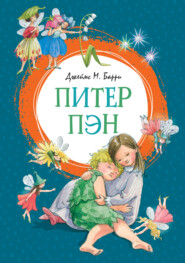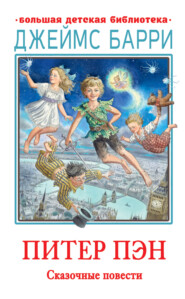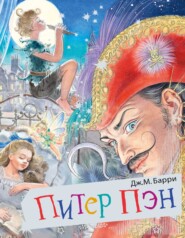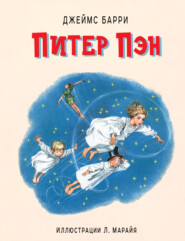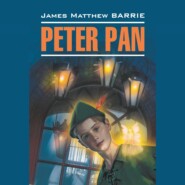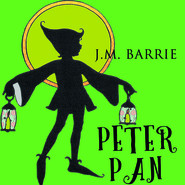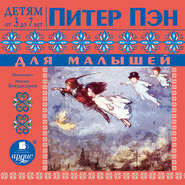По всем вопросам обращайтесь на: info@litportal.ru
(©) 2003-2025.
✖
When a Man's Single: A Tale of Literary Life
Автор
Год написания книги
2017
Настройки чтения
Размер шрифта
Высота строк
Поля
Tammas pulled from beneath the table an unsteady three-legged stool – Davy's stool – and sat down on it slowly. Rob took a step nearer as if to ask him to sit somewhere else, and then turned away his head.
'Ay, ay,' said Haggart.
Then, as he saw the others gathering round the minister at the door, he moved uneasily on his stool.
'Whaur's Davy?' he said.
'Did ye no ken she was lost?' the saw-miller asked, in a voice that was hardly his own.
'Ay, I kent,' said Tammas; 'she's on the Whunny road.'
Rob had been talking to the minister in what both thought English, which in Thrums is considered an ostentatious language, but he turned on Tammas in broad Scotch. In the years to come, when he could wear gloves without concealing his hands in his pockets, excitement brought on Scotch as a poultice raises blisters.
'Tammas Haggart,' he cried, pulling the stone-breaker off his stool.
The minister interposed.
'Tell us what you know at once, Tammas,' said Mr. Dishart, who, out of the pulpit, had still a heart.
It was a sad tale that Haggart had to tell, if a short one, and several of the listeners shook their heads as they heard it.
'I meant to turn the lassieky,' the stone-breaker explained, 'but, ou, she was past in a twinklin'.'
On the saw-mill brig the minister quickly organised a search party, the brig that Rob had floored anew but the week before, rising daily with the sun to do it, because the child's little boot had caught in a worn board. From it she had often crooned to watch the dank mill-wheel climbing the bouncing burn. Ah, Rob, the rotten old planks would have served your turn.
'The Whunny road' were the words passed from mouth to mouth, and the driblet of men fell into line.
Impetuous is youth, and the minister was not perhaps greatly to blame for starting at once. But Lang Tammas, his chief elder, paused on the threshold.
'The Lord giveth,' he said solemnly, taking off his hat and letting the night air cut through his white hair, 'and the Lord taketh away: blessed be the name of the Lord.'
The saw-miller opened his mouth, but no words came.
The little search party took the cold Whunny road. The day had been bright and fine, and still there was a smell of flowers in the air. The fickle flowers! They had clustered round Davy and nestled on her neck when she drew the half-ashamed saw-miller through the bleating meadows, and now they could smile on him when he came alone – all except the daisies. The daisies, that cannot play a child false, had craned their necks to call Davy back as she tripped over them, and bowed their heavy little heads as she toddled on. It was from them that the bairn's track was learned after she wandered from the Whunny road.
By and by the hills ceased to echo their wailing response to Hobart's bell.
Far in the rear of the more eager searchers, the bellman and the joiner had found a seat on a mossy bank, and others, footsore and weary, had fallen elsewhere from the ranks. The minister and half a dozen others scattered over the fields and on the hillsides, despondent, but not daring to lag. Tinkers cowered round their kettles under threatening banks, and the squirrels were shadows gliding from tree to tree.
At a distant smithy a fitful light still winked to the wind, but the farm lamps were out and all the land was hushed. It was now long past midnight in country parts.
Rob Angus was young and strong, but the heaven-sent gift of tears was not for him. Blessed the moaning mother by the cradle of her eldest-born, and the maid in tears for the lover who went out so brave in the morning and was not at evenfall, and the weeping sister who can pray for her soldier brother, and the wife on her husband's bosom.
Some of his neighbours had thought it unmanly when Rob, at the rumble of a cart, hurried from the saw-mill to snatch the child in his arms, and bear her to a bed of shavings. At such a time Davy would lift a saw to within an inch of her baby face, and then, letting it fall with a wicked chuckle, run to the saw-miller's arms, as sure of her lover as ever maiden was of man.
A bashful lover he had been, shy, not of Davy but of what men would say, and now the time had come when he looked wistfully back to a fevered child tossing in a dark bed, the time when a light burned all night in Rob's kitchen, and a trembling, heavy-eyed man sat motionless on a high-backed chair. How noiselessly he approached the bonny mite and replaced the arm that had wandered from beneath the coverlet! Ah, for the old time when a sick imperious child told her uncle to lie down beside her, and Rob sat on the bed, looking shamefacedly at the minister. Mr. Dishart had turned away his head. Such things are not to be told. They are between a man and his God.
Far up the Whunny hill they found Davy's little shoe. Rob took it in his hand, a muddy, draggled shoe that had been a pretty thing when he put it on her foot that morning. The others gathered austerely around him, and strong Rob stood still among the brackens.
'I'm dootin' she's deid,' said Tammas Haggart.
Haggart looked into the face of old Rob's son, and then a strange and beautiful thing happened. To the wizened stone-breaker it was no longer the sombre Whunny hill that lay before him. Two barefooted herd-laddies were on the green fields of adjoining farms. The moon looking over the hills found them on their ragged backs, with the cows munching by their side. They had grown different boys, nor known why, among the wild roses of red and white, and trampling neck-high among the ferns. Haggart saw once again the raspberry bushes they had stripped together into flagons gleaming in the grass. Rob had provided the bent pin with which Tammas lured his first trout to land, and Tammas in return had invited him to thraw the neck of a doomed hen. They had wandered hand-in-hand through thirsty grass, when scythes whistled in the corn-fields, and larks trilled overhead, and braes were golden with broom.
They are two broad-shouldered men now, and Haggart's back is rounding at the loom. From his broken window he can see Rob at the saw-mill, whistling as the wheel goes round. It is Saturday night, and they are in the square, clean and dapper, talking with other gallants about lasses. They are courting the same maid, and she sits on a stool by the door, knitting a stocking, with a lover on each side. They drop in on her mother straining the blaeberry juice through a bag suspended between two chairs. They sheepishly admire while Easie singes a hen; for love of her they help her father to pit his potatoes; and then, for love of the other, each gives her up. It is a Friday night, and from a but and ben around which the rabble heave and toss, a dozen couples emerge in strangely gay and bright apparel. Rob leads the way with one lass, and Tammas follows with another. It must be Rob's wedding-day.
Dim grow Tammas's eyes on the Whunny hill. The years whirl by, and already he sees a grumpy gravedigger go out to dig Rob's grave. Alas! for the flash into the past that sorrow gives. As he clutches young Rob's hand the light dies from Tammas's eyes, his back grows round and bent, and the hair is silvered that lay in tousled locks on a lad's head.
A nipping wind cut the search party and fled down the hill that was changing in colour from black to grey. The searchers might have been smugglers laden with whisky bladders, such as haunted the mountain in bygone days. Far away at Thrums mothers still wrung their hands for Davy, but the men slept.
Heads were bared, and the minister raised his voice in prayer. One of the psalms of David trembled in the grey of the morning straight to heaven; and then two young men, glancing at Mr. Dishart, raised aloft a fallen rowan-tree, to let it fall as it listed. It fell pointing straight down the hill, and the search party took that direction; all but Rob, who stood motionless, with the shoe in his hand. He did not seem to comprehend the minister's beckoning.
Haggart took him by the arm.
'Rob, man, Rob Angus,' he said, 'she was but fower year auld.'
The stone-breaker unbuttoned his trouser pocket, and with an unsteady hand drew out his snuff-mull. Rob tried to take it, but his arm trembled, and the mull fell among the heather.
'Keep yourselves from idols,' said Lang Tammas sternly.
But the minister was young, and children lisped his name at the white manse among the trees at home. He took the shoe from the saw-miller who had once been independent, and they went down the hill together.
Davy lay dead at the edge of the burn that gurgles on to the saw-mill, one little foot washed by the stream. The Whunny had rocked her to sleep for the last time. Half covered with grass, her baby-fist still clutched the letter. When Rob saw her, he took his darling dead bairn in his arms and faced the others with cracking jaws.
'I dinna ken,' said Tammas Haggart, after a pause, 'but what it's kind o' nat'ral.'
CHAPTER III
ROB GOES OUT INTO THE WORLD
One evening, nearly a month after Rob Angus became 'single,' Mr. George Frederick Licquorish, editor and proprietor of the Silchester Mirror, was sitting in his office cutting advertisements out of the Silchester Argus, and pasting each on a separate sheet of paper. These advertisements had not been sent to the Mirror, and, as he thought this a pity, he meant, through his canvasser, to call the attention of the advertisers to the omission.
Mr. Licquorish was a stout little man with a benevolent countenance, who wrote most of his leaders on the backs of old envelopes. Every few minutes he darted into the composing-room, with an alertness that was a libel on his genial face; and when he returned it was pleasant to observe the kindly, good-natured manner in which he chaffed the printer's devil who was trying to light the fire. It was, however, also noticeable that what the devil said subsequently to another devil was – 'But, you know, he wouldn't give me any sticks.'
The Mirror and the Argus are two daily newspapers published in Silchester, each of which has the largest circulation in the district, and is therefore much the better advertising medium. Silchester is the chief town of an English midland county, and the Mirror's business notepaper refers to it as the centre of a population of half a million souls.
The Mirror's offices are nearly crushed out of sight in a block of buildings, left in the middle of a street for town councils to pull down gradually. This island of houses, against which a sea of humanity beats daily, is cut in two by a narrow passage, off which several doors open. One of these leads up a dirty stair to the editorial and composing-rooms of the Daily Mirror, and down a dirty stair to its printing-rooms. It is the door at which you may hammer for an hour without any one's paying the least attention.
During the time the boy took to light Mr. Licquorish's fire, a young man in a heavy overcoat knocked more than once at the door in the alley, and then moved off as if somewhat relieved that there was no response. He walked round and round the block of buildings, gazing upwards at the windows of the composing-room; and several times he ran against other pedestrians on whom he turned fiercely, and would then have begged their pardons had he known what to say. Frequently he felt in his pocket to see if his money was still there, and once he went behind a door and counted it. There was three pounds seventeen shillings altogether, and he kept it in a linen bag that had been originally made for carrying worms in when he went fishing. When he re-entered the close he always drew a deep breath, and if any persons emerged from the Mirror office he looked after them. They were mostly telegraph boys, who fluttered out and in.
When Mr. Licquorish dictated an article, as he did frequently, the apprentice-reporter went into the editor's room to take it down, and the reporters always asked him, as a favour, to shut George Frederick's door behind him. This apprentice-reporter did the police reports and the magazine notices, and he wondered a good deal whether the older reporters really did like brandy and soda. The reason why John Milton, which was the unfortunate name of this boy, was told to close the editorial door behind him was that it was close to the door of the reporters' room, and generally stood open. The impression the reporters' room made on a chance visitor varied according as Mr. Licquorish's door was ajar or shut. When they heard it locked on the inside, the reporters and the sub-editor breathed a sigh of relief; when it opened they took their legs off the desk.
The editor's room had a carpet, and was chiefly furnished with books sent in for review. It was more comfortable, but more gloomy-looking than the reporters' room, which had a long desk running along one side of it, and a bunk for holding coals and old newspapers on the other side. The floor was so littered with papers, many of them still in their wrappers, that, on his way between his seat and the door, the reporter generally kicked one or more into the bunk. It was in this way, unless an apprentice happened to be otherwise disengaged, that the floor was swept.
In this room were a reference library and an old coat. The library was within reach of the sub-editor's hand, and contained some fifty books, which the literary staff could consult, with the conviction that they would find the page they wanted missing. The coat had hung unbrushed on a nail for many years, and was so thick with dust that John Milton could draw pictures on it with his finger. According to legend, it was the coat of a distinguished novelist, who had once been a reporter on the Mirror, and had left Silchester unostentatiously by his window.
It was Penny, the foreman in the composing-room, who set the literary staff talking about the new reporter. Penny was a lank, loosely-jointed man of forty, who shuffled about the office in slippers, ruled the compositors with a loud voice and a blustering manner, and was believed to be in Mr. Licquorish's confidence. His politics were respect for the House of Lords, because it rose early, enabling him to have it set before supper-time.
The foreman slithered so quickly from one room to another that he was at the sub-editor's elbow before his own door had time to shut. There was some copy in his hand, and he flung it contemptuously upon the desk.







